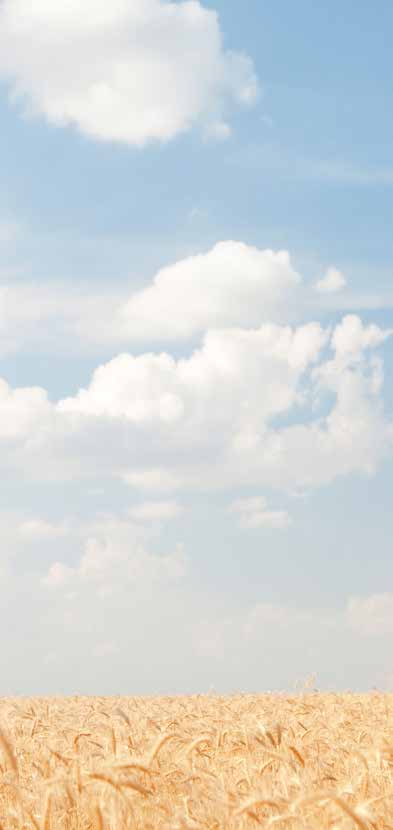Redseal.co.nz



An essential guide on the
importance of iron



The Salus guide ‘Iron and Pregnancy'
informs pregnant women as well as health
care professionals about the importance of
iron for the human body, particularly during
pregnancy; how to identify the first signs of
an iron deficiency; and what you can do to
maintain healthy iron levels before, during
and after pregnancy.


Pregnancy and diet
Some foods to avoid
Diet: what your body now needs in particular
Healthy iron levels
Iron demand during pregnancy and breastfeeding
What are the signs of low iron levels?
Criteria for iron supplements
Floradix Liquid Iron Formula – the easy solution
Recommended daily dose
Pregnancy and Diet
The nine months of pregnancy is not always an easy and enjoyable time for the mother. Despite the excitement and anticipation of the new arrival, there are many unpleasant symptoms that can affect a woman during pregnancy, including nausea, tiredness and a lack of energy.
It is essential for the
new mother to take extra care of herself as pregnancy requires her body to be at maximum performance levels. It is important to
compensate for the extra demand placed on the body by having plenty of sleep, taking sufficient exercise and following a healthy balanced diet, one that meets the changes in demand due to pregnancy.
Some foods to avoid
Foods to be avoided include:
certain cheeses such
shark, swordfish and
as brie, camembert
marlin, raw shellfish
caffeine (drink no more
than 300mg per day)
raw or partially
containing vitamin A
cooked eggs, raw and undercooked meat
Diet: what your body
now needs in particular
CalciumThe increased demand for calcium can be covered by eating a sufficient amount of dairy products including yoghurt, milk and cheese. Almond, rice or soya milk is a good option for those suffering from lactose intolerance.
IodinePlays an important role in the development of the baby.
Natural sources include:
Folic acidParticularly important in the first few months when the neural tube is formed. The NZ Ministry of Health recommends women planning or in early stages of pregnancy, should take 800mg per day.
Natural sources include:
IronOur bodies need iron for the formation of red blood cells and for metabolism. During pregnancy the iron levels in the blood are monitored regularly as the demand for iron is increased. To help maintain healthy iron levels it is often recommended to take an iron supplement that is gentle on the stomach and absorbed well by the body.
FibreHelps in the prevention of constipation.
Natural sources include:
veg, fruits, cereals
StarchesComplex carbohydrates such as brown rice, brown pasta and wholemeal bread for a slow energy release.
Natural sources include:
Our blood consists of 52% water. It also contains proteins, nutrients, enzymes, hormones and blood cells (red and white blood corpuscles and blood platelets).
There are approximately 4-6 litres of blood circulating in our body and the quality of this blood is vital for good health.
Iron is very important for the formation of
haemoglobin, which is the red pigment of the blood cells and responsible for the transport of oxygen from the lungs to all the body cells. It is also responsible for carrying carbon dioxide back to the lungs where it will be exhaled at the end of this process.
An adult has 25,000 billion red blood cells at their
disposal; however, these need to be replaced every four months by a new generation of cells. This tremendous job can only be done if we supply our bodies with sufficient quantities of iron. As our bodies cannot produce iron, we have to get it through the diet. The iron we gain from our diets will then mainly be used for blood formation and the rest goes into storage.
Healthy iron levelsThe iron content in a healthy adult averages between 3.5 to 5g. Approximately 65-70% of this is part of the haemoglobin, 25% is part of the iron storage (ferritin) and 5% is part of the functional iron (myglobin).
A healthy balanced diet containing iron-rich foods
can normally provide our bodies with an adequate amount of iron. However there are extra demands placed on a woman's body which often make it difficult to provide enough iron from food alone.
During menstruation a woman can lose 2mg a day. The demand for iron increases greatly during pregnancy and breastfeeding as a woman must provide this nutrient for her baby too.
Iron demand during
pregnancy and breastfeeding
During pregnancy the iron demand can rise significantly. Iron is essential for the transport of oxygen between the mother and her foetus as well as providing the baby with sufficient iron stores for the first six months following the birth. Iron is also essential for foetal growth, particularly for normal brain development and to help prevent maternal anaemia. The blood volume increases considerably; consequently, more iron is needed to form red blood cells.
As it is difficult to meet this extra demand through a balanced diet alone, it is often recommended to take an iron supplement from week 13 or even earlier.
Unfortunately there is no universally agreed definition of the recommended daily intake of vitamins and minerals in pregnancy. Many individual circumstances of a pregnant woman have to be considered, such as her socioeconomic, cultural and religious background, as well as her eating habits.
Women are generally advised to seek the advice of
their GP or midwife before taking supplements during pregnancy.
What are the signs
of low iron levels?A lack of iron is the most common mineral deficiency in the world, according to the World Health Organisation. It happens when the iron supply cannot meet the iron demand.
The following symptoms may signal an iron deficiency and a need to check your iron levels:
persistent tiredness
reduction in endurance
concentration problems
brittle hair and nails
low immune system
When deciding which iron supplement to take, it is important that it contains iron compounds that can be easily absorbed by the body. Our body mainly absorbs iron in bivalent form due to the pH value in the upper small intestine; therefore, pregnant and breastfeeding women should aim to take a supplement that contains bivalent iron (such as iron gluconate). Additionally, the supplement should contain vitamin C as this enhances the iron absorption. Liquid supplements generally are better absorbed than tablets or capsules.
Substances that enhance iron absorption are:
Substances that reduce iron absorption are:
tannins which are
oxalic acid (contained
contained in coffee or
phytates (contained
calcium (milk products)
various pharmaceuticals
Therefore it is recommended to take iron supplements at least half an hour before meals so as to avoid any negative interactions with other substances. If taken with fruit juice, the absorption of iron will be increased.
As iron is an essential mineral that is involved in many important processes it is needed by babies, children and adults. Of course, depending on age and circumstance, the need for iron can vary greatly.
Pregnant womenDuring pregnancy the body starts to produce more red blood cells and plasma in order to have enough for the foetus. A woman's iron reserves will become strained, so it is important to provide the body with extra iron to meet this extra demand. It is beneficial to build up iron reserves prior to pregnancy, which will help to maintain healthy iron levels during and after pregnancy.
Breastfeeding womenIron is required to produce the mother's milk which covers the baby's demand for iron. Babies absorb approximately 50% of the contained iron.
Children and adolescentsDue to the rapid growth that a child's body goes through, they consume the body's iron rapidly, which is needed for the formation of blood and body cells.
WomenWomen in general have twice the demand of men due to blood loss during menstruation.
ConvalescenceIt is often necessary to supply the body with more iron due to blood loss following surgery, accidents, births or blood donations.
Floradix Liquid Iron
Formula – the easy solution
Floradix is a time tested liquid iron formula that has been used by millions of women worldwide for more than 40 years. What makes Floradix so special?
The benefits of Floradix: Contains iron gluconate which is absorbed very well
Non-constipating formula
Vitamin C and fruit concentrates enhance the iron
absorption further
Herbal extracts, e.g. from nettle, carrots, spinach
and ocean kelp, help maintain a healthy digestion and provide further trace elements
B-vitamins support blood formation and energy release
Fruit juices give Floradix a pleasant taste
Floradix is free from chemical preservatives, colourings
Floradix is also free from alcohol, animal derivatives,
nuts, lactose and dairy produce
Floradix is suitable for vegetarians and almost
As all nutrients are already dissolved in a liquid they are much better absorbed by the body, compared to tablets that must be broken down in the digestive tract.
All this makes Floradix Liquid Iron Formula very gentle
to the stomach and avoids constipation – a problem that many women suffer from during pregnancy.
Floravital is the yeast, wheat, and gluten-free version
of the product for those people wishing to avoid such ingredients. Floravital contains no honey and is therefore suitable for vegans.
With Floradix or Floravital you can maintain healthy
iron levels before, during and after pregnancy – for you and your baby.
Recommended daily dose
Children aged 1-5 years: 5ml once daily
Children aged 6-12 years: 10ml once daily
Adults: 10ml twice daily
The adult recommended daily dose provides 15mg of iron. During pregnancy it may be necessary to increase the daily dose; however, this should be discussed with your GP or midwife and only be done under medical supervision.
Would you like to make Red Seal
a part of your own healthy lifestyle?
For more information visit
Red Seal Natural Health Ltd
PO Box 19046, Avondale 1746, Auckland, New Zealand
0800 733 732 • [email protected]
Source: http://www.redseal.co.nz/wp-content/uploads/2014/06/Red-Seal-Pregnancy-Brochure.pdf
Medical Technology SA Volume 25 No. 1 June 2011 Peer reviewed rEviEW PATHOGENESIS AND FUTURE TREATMENTS OF SYSTEMIC LUPUS ERYTHEMATOSUS: THE ROLE OF CYTOKINES AND ANTI-CYTOKINES?W. J. MauleUniversity of Johannesburg, Department of Biomedical Technology, Faculty of Health Sciences, South Africa.email: [email protected] tel: +27 (0)11 559 6265 fax: +27 (0)11 559 6558
Studia Medyczne Akademi wiêtokrzyskiej Ma³gorzata Nowak, Adam Kabza, Stanis³aw G³uszek Zak³ad Chirurgi i Pielêgniarstwa Klinicznego Instytut Pielêgniarstwa i Po³o¿nictwa Wydzia³ Nauk o Zdrowiu Akademi wiêtokrzyskiej w Kielcach Dyrektor: prof. dr hab. n. med. S. G³uszek Dziekan: prof. zw. dr hab. W. Dutkiewicz Oddzia³ Chirurgi Niepubliczny Zak³ad Opieki Zdrowotnej w. Aleksandra w Kielcach















